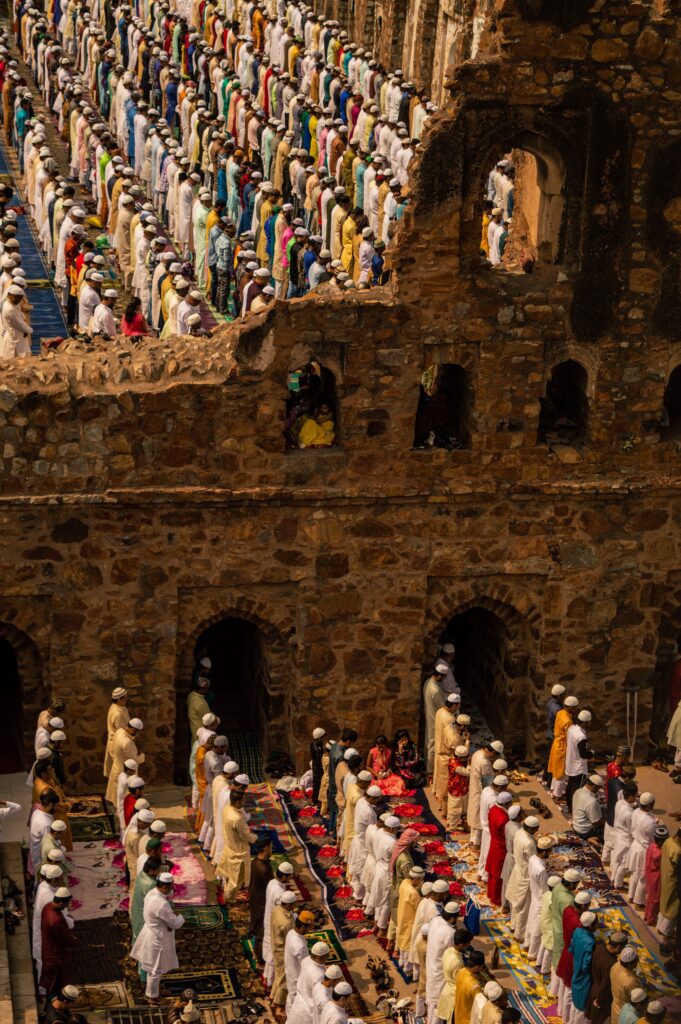
Prayer or salah is one of the five pillars of Islam and is highly regarded as one of the most important aspects of being a Muslim. It is an act of worship to Allah (God) and is meant to bring peace, tranquillity and focus in life. Namaz, as it’s known in Arabic, is typically performed five times a day and consists of a combination of postures and recitations from the Qur’an. In this blog post, we explore the importance of Namaz in Islam. From its spiritual significance to its effects on physical health, read on to learn more about how this ritual helps Muslims remain connected with God and stay grounded in their faith.
What is Namaz?
Namaz is the Islamic prayer. It is an obligatory part of the five daily prayers for Muslims. The word namaz is derived from the Arabic verb meaning “to bow, to prostrate.” Muslims believe that prayer is a direct link between the individual and God.
The performance of prayers five times a day is compulsory but there are certain conditions which have to be met before performing them. They are:
1)To be in a state of ritual purity
2)To have performed ablution
3)To be facing the qiblah
4)To have the intention of performing the prayer
5)To recite Surah al-Fatihah, at least in every rak’ah
6)To say “Amen” after reciting Surah al-Fatihah
The history of Namaz
Namaz is one of the five pillars of Islam. It is a mandatory daily prayer for all Muslims. Namaz has been part of Muslim life since the time of the Prophet Muhammad (peace be upon him).
The word “Namaz” is derived from the Arabic root word “n-m-z”, which means “to bow, to prostrate”. In Islamic terminology, Namaz is the act of worship performed by Muslims five times a day: at dawn, midday, afternoon, sunset and nightfall.
The history of Namaz can be traced back to the time of the Prophet Muhammad (peace be upon him). During his lifetime, the Prophet Muhammad (peace be upon him) himself performed Namaz regularly and taught his followers how to pray.
After the Prophet Muhammad (peace be upon him) passed away, his companions continued to perform Namaz and teach it to others. Today, there are 1.6 billion Muslims around the world who perform Namaz on a daily basis.
The benefits of Namaz
The benefits of Namaz are many and varied. It is a spiritual practice that helps to purify the soul, develops self-discipline and concentration, and brings one closer to Allah.
Namaz also has physical and mental health benefits. It can help to reduce stress and anxiety, improve sleep quality, and promote overall well-being. Additionally, regular prayer can help to build a sense of community and connect individuals with a shared belief system.
How to perform Namaz
There are certain steps to follow while performing Namaz. They are as follows:
1. Make the intention to pray.
2. Perform ablution or Wudhu.
3. Stand facing the direction of the Ka’bah in Mecca.
4. Recite Surah Al-Fatihah, the first chapter of the Quran.
5. Recite another surah or verses from the Quran.
6. bow down until your head is level with your knees and say “Allahu Akbar”. This is called Ruku’. You may recite a supplication at this point if you wish. Stand up straight again and say “Sami’Allahu liman hamidah” which means “God hears those who praise Him.” bend down and place your hands on your knees and say “Rabbana lakal-hamd” which means “Our Lord, to You belongs all praise.” This is called Sujud or prostration and you should remain in this position for a few moments, reciting prayers or supplications. return to standing position and repeat the process two more times, completing a total of four Rakahs or cycles of prayer
Conclusion
We have discussed the importance of namaz in Islam and its great rewards for believers. Namaz is an integral part of a Muslim’s life and it helps to bring us closer to Allah and His infinite mercy. It is important that we take the time each day to perform our prayers with sincerity, humility, devotion, and gratitude so that we can reap all its benefits in this life and beyond. May Allah grant us all the ability to practice namaz diligently. Ameen!
